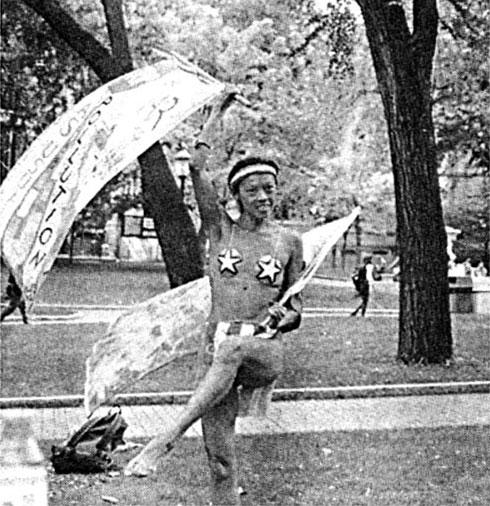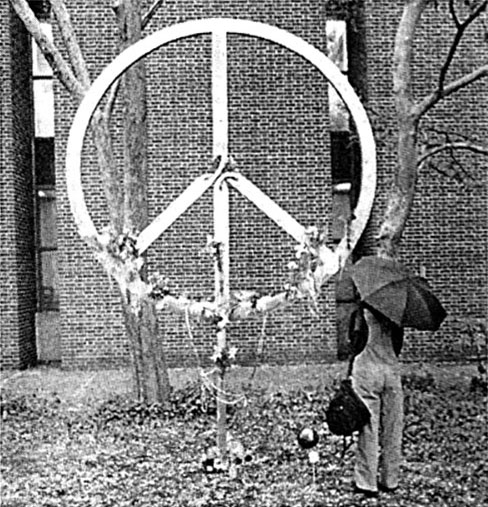words about jh | interview
Altered States: Fourth World
from ocean of sound
by david toop | 1997
altered states: fourth world
“Peeling to the lethargic beat of tumescent music, she wore vivid makeup, glitter in her hair and crystalline clothes, all hooks, straps, sequins and secret snappers. The stripper’s art needs special garments made to tear away like the husk of a pomegranate. So you do not notice the woman as she is, because you are looking for fulfillment of the mind’s eye. You are examining an idea—depravity or pleasure, or their perilous symbiosis.”
—David Thomson, Suspects, 1985
“Peeling to the lethargic beat of tumescent music, she wore vivid makeup, glitter in her hair and crystalline clothes, all hooks, straps, sequins and secret snappers. The stripper’s art needs special garments made to tear away like the husk of a pomegranate. So you do not notice the woman as she is, because you are looking for fulfilment of the mind’s eye. You are examining an idea—depravity or pleasure, or their perilous symbiosis.”
David Thomson, Suspects, 1985
IN A CREEPING, convoluted trail suggestive of plant growth, David Thomson constructed a novel, or a lattice of biographical sketches, from the imaginary web of lives as they might have been lived by cinematic characters outside the frame of the cinema screen. These characters, their previously unknown pasts and futures—Walker from Point Blank, Norma Desmond from Sunset Boulevard, Evelyn Mulwray and Noah Cross from Chinatown and so on—snag and pull at each other in this web, implying an invisible world occupied by the ragged stories of every fictional identity ever invented.
A similar process of dragging icons and overlaying them, sliced translucently thin, onto fictional histories, has been one of the key devices of technological music. Feasibly, you could extrapolate a novel from the interweaving stories buried within John Cage’s Variations IV , but richer possibilities unfolded in the early Eighties when Jon Hassell began to capture, loop and laminate fragments of sampled sound on albums such as Aka-Darbari-Java. A student of Stockhausen who had recorded with Terry Riley (In C), La Monte Young (The Theater of Eternal Music), Brian Eno, Talking Heads, David Sylvian and Peter Gabriel, Hassell formalised that process by naming his 1994 band Bluescreen, after the cinematic technique of filming foreground action against a blue background, “adopting this metaphor in musical ways, creating magical textures in sound, making something familiar sound fresh and exotic by separating it from its background and combining it with something new and startling.” Finding a review of David Thomson’s Suspects in the LA Weekly, he hit on this as another metaphor connecting to his own search for a music which was almost psychotropic in its capacity to activate alien worlds in the imagination through strange juxtapositions.
Previous albums, particularly Earthquake Island, Vernal Equinox, Possible Musics and Dream Theory In Malaya, along with his collaborations with Gnawa musicians from Morocco and the Farafina percussionists from Burkina Faso, were made in the spirit of creative anthropology exemplified earlier in this century by the surrealist writer, traveller, critic and documenter of dreams Michel Leiris. Writing on ethnographic surrealism in The Predicament of Culture, James Clifford offers an outline of the territory: “I am using the term Surrealism in an obviously expanded sense to circumscribe an aesthetic that values fragments, curious collections, unexpected juxtapositions—that work to provoke the manifestations of extraordinary realities drawn from the domains of the erotic, the exotic and the unconscious.”
That could be a précis of Jon Hassell’s oeuvre. But with Aka-Darbari-Java the perfume of ethnopoetics was supplemented by parallels with literature and the advanced technology of hyperreality, indicated through affinities with Latin American Magic Realist writing and the video technique of Keying In. As for the sound, sluggish shapes undulated in the depths of a liquid fog formed from particles of air passed through metal > electronic transformations > the pitches of an Indian raga > slowly turning variations of a drum cycle from Senegal recorded in Paris > glittering spirals of noise lifted from gamelan music and an Yma Sumac record (already a repository of colonial myths) orchestrated in Hollywood Exotica style by Les Baxter.
This was a form of music, Hassell suggested which would leave behind “the ascetic face which Eurocentric tradition has come to associate with serious expression.” Taboos were transgressed, notably in the music’s sensuality, and its free use of source material, but this was not untutored montage. The raga—Darbari—can be heard as interpreted by one of Hassell’s teachers, the great Kirana-style vocalist Pandit Pran Nath, recorded by Alan Douglas in New Delhi and released 18 years later on Ragas of Morning and Night.
Though he is now hampered by age and Parkinson’s Disease by the mid-1990s when he recorded with the Kronos Quartet, Pran Nath’s approach to teaching was once formidable. “It is necessary to remain one hundred years with the guru, then practice for one hundred years, and then you can sing for one hundred years,” he has said. The last time Hassell and I talked, back in 1989, Jon tugged and worried at the contradiction between lengthy (though not quite that lengthy) study and the instantaneity of Xerox culture.
“It’s a quandary for me,” he said, “because I did develop a physical dexterity when I studied Indian music with Pandit Pran Nath. I decided at that point I wanted to walk into a room and have something that was in my nervous system which I could activate and bring with me wherever I went. It’s a problem to know what to do with that in the age of sampling and audio sleight of hand, because the audience is looking for the final result, basically. They don’t care if it took you twenty years to arrive at it or whether somebody sampled it off of a record and used it.”
He had just released City: Works of Fiction at that point, an album produced with a lot of digital editing and a strong influence from Hank Shocklee’s Bomb Squad productions for Public Enemy and a vocal sample from P.E.’s ‘She Watch Channel Zero?!’. City set an industry standard for digitally sliced soundtracks of the city twitching in delerium tremens: chicken sacrifices and dogfights in the basement, bullroarers on the bridges, camcorders at the murder scene, TVs in the lamp posts, sex temples, knock-down kidneys at car-boot sales, fake breasts, fake Cartier, the smell of a thousand cuisines. As Japanese composer and bass player Motohiko Hamase wrote for the sleeve notes for his Technodrome album: “City…provides a thorough expression of city music in one of the most remarkable accomplishments of recent years.”
The reference points for this album were characteristically broad, mostly extramusical, ranging from Ben Okri’s City of Red Dust, Italo Calvino’s Invisible Cities and Jean Baudrillard’s portrayal of America as “the primitive society of the future”, to Federico Fellini’s custom-built celluloid city of Reggiolo, Salman Rushdie’s tropicalised London and Ridley Scott’s Los Angeles 2019. In a long version of Blade Runner screened in San Francisco, a scene later excised from the commercially released director’s cut version showed two women, like Japanese Butoh dancers, moving slowly on a nightclub stage to the liquid techno-throb that Vangelis envisaged (prophetically, yet still miscalculated by more than twenty-five years) as music of the next century. A fertile texture of images: body, machine, global, intimate, expressive, emotionally withdrawn.
Like Terry Riley, playing saxophone in an electronic hall of mirrors in early recordings such as ‘Poppy Nogood and the Phantom Band’, Hassell had created an otherworldly studio sound that had become recognised as his signature. This use of digital delay, combined with pitch shifting, created its own problems. “When I started studying with Pran Nath”, he said, “I realised that the basic art of raga is, as he says, the music between the notes. That’s to call attention to the fact that if you have a grid and each one of the lines on the grid is a pitch level, the art is in drawing precisely a beautiful curve between one level and another level. It’s like calligraphy. Trumpet’s a lonely instrument. It’s one voice. When I realised I could have a replica of the trumpet playing with me, then it was as though instead of drawing the curves with one pencil I could hold a handful of pencils and draw the curves. In trying to make these curves in raga, a very breathy, vocal-type sound resulted. Basically, it’s playing the mouthpiece, not the trumpet. I blow it like a conch shell—that’s the most primitive, fundamental aspect of what I do. This is the only instrument other than the voice that works that way. The sound is strange to start with, so when I add the electronic eye-shadow, the mistaken conclusion is that it’s all done with mirrors, not meat.” So a voice within seemed to be saying—as it does to most trained musicians from time to time—to bare the expertise behind the plug-in mask. His next project was planned as a solo album, untreated, unadorned, unplugged.
But the album that emerged, eventually, was far from the naked intimacy of a solo acoustic trumpet. There was a naked intimacy, or should I say provocatively dressed nakedness, but this was absorbed into the associated imagery of the music rather than the instrumentation. As the title—Dressing For Pleasure—indicated, this was a further footstep in the move away from ascetic aesthetics, into hip-hop, jazz, ragga and the ritualised sex of the modern primitive movement. Dressing For Pleasure can be placed next to all the younger hybrids of hip-hop, jungle, trip-hop and so on, linked by a connecting thread which has little to do with age or geography. That thread was tenuous, yet it constituted a sonic assault on musical fundamentalism.
An avid internet user, Jon Hassell has some interesting observations on fundamentalism, pertinent to the tensions between nationalism and transglobalism. Click yourself on to the internet and you can find electronic discussion sites devoted to heraldry and folk dancing.
“Maybe it will become convenient to redraw a map of the world according to interests and who wants to live in which era”, he says from his home in West Hollywood as we talk on the telephone. “We could have wars between the fifteenth century and the twenty-first century… In the past, having been coming from the abstract, instrumental side of things, music was metalanguage for performing. I always felt that music took off where words stopped. Hip-hop changed that, because hip-hop allowed a new relationship between words and music, one that I felt more comfortable with. At the same time, every record I’ve ever done has always been some sort of a fantasy, an erotic fantasy. They’ve always been in this same constellation of sensuality, where the Gil Evans sound equals this sense of feeling good at a certain place at a certain time—maybe post-orgasmic music as opposed to pre-orgasmic. I keep asking the central question: What is it I really like? What is it that I really want to hear? And both in the personal realm, the sex fantasy realm, and the musical realm, it comes down to shockingly simple things. I love lush sensual atmospheres. I love beautiful chords. I’m in love with harmony. Strangely enough, I’ve taken the path of disciplines which didn’t have a lot to do with that—at least in the sense of traditional chord changes like studying raga. Although there are vast harmonic implications. It is, in fact, very covertly harmonic, but I’m talking about the beauty of having one note and you’ve got these chords changing underneath. Within each chord, that note takes on a different kind of character. It’s a different picture each time, but using the same foreground. Brazilian pop music seemed to pick up on that right away—’One Note Samba’ et cetera.
“Why did Brazilians choose this, or why did Gil Evans choose those harmonies out of the repertoire that existed at that point. There is something going on there, some deep essential drive towards the beautiful. The beautiful is defined here as being that which drags you most profoundly without any abstract constructs. Without talking yourself into beautiful.” At the heart of our emergent sense of beauty in the present is a new tonality, which Jon sees as a development of samples being detuned and overlaid, particularly in hip-hop, to create dense, strange harmonic dissonances. To people who don’t insist that music must be Eurocentrically in tune, these are very pleasurable, but to those whose first and formative listening experiences are hip-hop, this new tonality is normal.
Jon sends me an essay from Skin Two (issue 14), written by Pat Califia and entitled ‘Sex Magic: Modern Primitives, Latex Shamans & Ritual SM’. “Modern primitives live, for the most part, in urban enclaves in the age of the machine”, she writes. ‘We have to find a way to synthesise the rhythms of nature with our electronic lives. A fuzzy-headed, sentimental longing for a bucolic utopia will not save us from toxic waste or nuclear weapons. We need a world where we can have both computers and campfires.” In condemning misguided appropriations of pre-industrial, communal ritual for the post-industrial, private theatre of sex, this brilliant essay illuminates some of the murkier areas of Fourth World theory.
And in Dressing For Pleasure, there were musical developments of the Fourth World idea also. ‘Destination: Bakiff’, for example, sampled and chopped snatches of Duke Ellington’s recording of ‘Bakiff’. Composed by trombonist Juan Tizol, the original tune is a heady piece of exotica. “When Ellington and Strayhorn composed the Far East Suite in 1964”, wrote Mark Tucker in his notes for the Duke Ellington: The Blanton-Webster Band boxed set released in 1986, “they may have been inspired by their recent visit to the Orient, but surely they drew upon memories of Juan Tizol’s earlier studies in musical exotica, among them ‘Caravan’, ‘Pyramid’ and the atmospheric ‘Bakiff’. Tizol’s Puerto Rican origins seem to have little to do with a piece like ‘Bakiff’, where musical impressionism is the product of its composer’s imagination, not his first-hand experience with indigenous Caribbean idioms.” And for Ellington, these explorations were stimulated by an interest in Africa and the diaspora. “As a student of Negro history”, he said, “I had, in any case, a natural inclination in this direction.”
In the Fourth World, nothing is simple. “Possible musics, possible cultures, possible architecture, possible lifestyles, etc.”, Hassell says. “This is an idea that boils down to the range of possible relations between individual, tribe and nation in the mass electronic age. Imagine a grid of national boundaries and on to those project a new, non-physical communications derived geography—tribes of like-minded thinkers. Since a situation like this has never before existed, it follows that old, narrow-band approaches can’t work and that new approaches must be creative. That means intuitive and improvisational. I would like the message of Fourth World to be that things shouldn’t be diluted. This balance between the native identity and the global identity via various electronic extensions is not one that can be dictated or necessarily predicted. One should be very humble and respectful of our lack of knowledge about how those things combine, and be informed by knowledge of the way things used to be in smaller numbers—that’s where it becomes very useful to look at other cultures, small cultures, and try to develop a modus operandi for the new age, not New Age.” •
This piece first appeared in Ocean Of Sound
by David Toop (Serpent’s Tail, 1997)






